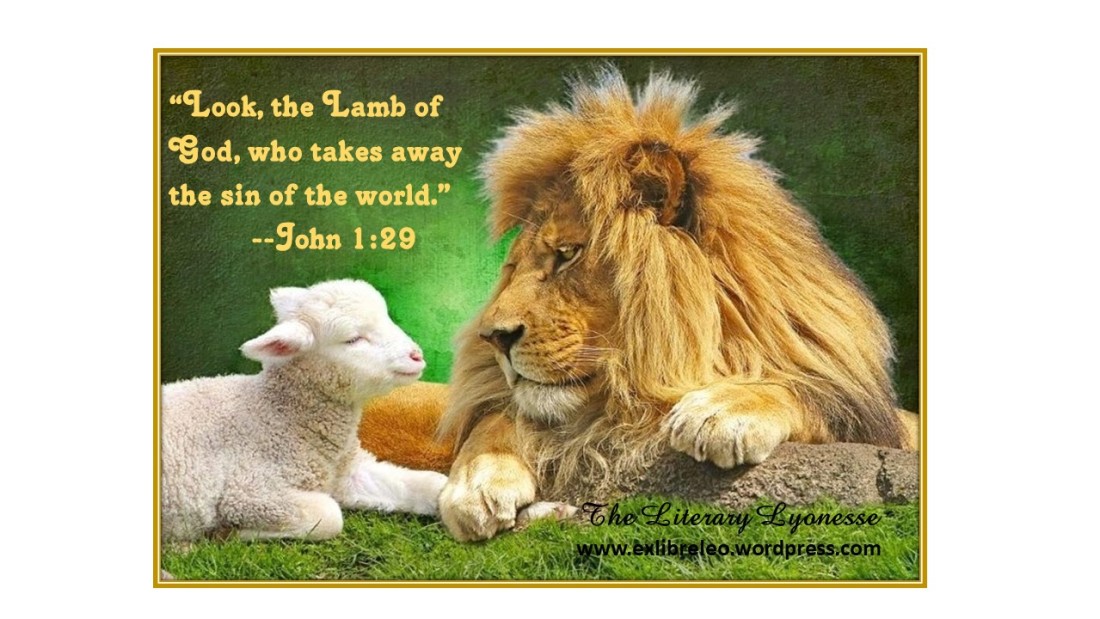
According to an old English proverb, first referenced by John Fletcher in 1624, “March comes in like a lion and goes out like a lamb.”
Robert Schlueter, journalist for The News-Democrat, believes the basis for this proverb lies within the heavens. Schlueter avows that the constellation Aries the Ram (aka lamb) can be seen in the Western night sky on March 1. On that same night Regulus in the constellation Leo the Lion is visible in the East. Thus, the astrological Aries (the goat) follows Leo (the lion).
Not being a fan of astronomy, I prefer to think of the March weather adage as a poetic juxtaposition of the meek and wild.
Although many people misquote Isaiah 11:6 and refer to the lion and the lamb lying down together, this passage actually describes harmony between the wolf and the lamb. Nonetheless, the prophet is referring to a peaceful co-existence of all creatures when Christ returns, a time when the meek and the wild can walk side-by-side without conflict.
I believe humans today should be more like the proverbial lion and lamb. Even though we possess opposing views, why can’t we dwell in harmony together?
The Message translation of Isaiah 11:6-9 describes this harmony as a “living knowledge of God”:
The wolf will romp with the lamb,
The leopard sleep with the kid.
Calf and lion will eat from the same trough,
And a little child will tend them.
Cow and bear will graze the same pasture,
Their calves and cubs grow up together,
And the lion eat straw like the ox
The nursing child will crawl over rattlesnake dens,
The toddler stick his hand down the hole of a serpent.
Neither animal nor human will hurt or kill on my holy mountain.
The whole earth will be brimming with knowing God-Alive,
A living knowledge of God ocean-deep, ocean-wide.
Like the lion and the lamb, British poet William Blake (1757-1827) juxtaposes the meek and the wild in his collections called Songs of Innocence and Songs of Experience.
As a devout Christian, Blake believed innocence to be a state of childlike love and trust toward everyone and everything. He saw experience as a state of disappointment and disillusionment with the world. Blake pondered over these two contradictory states of humanity and concluded that experience provided epiphany, thereby allowing him to achieve a sort of cleansing in order to return to a state of innocence.
In his poem “The Lamb,” Blake writes, “Little Lamb, who made thee? Dost thou know who made thee? . . . He is meek and he is mild, He became a little child.”
In “The Tyger” Blake asks, “Did he smile his work to see? Did he who made the Lamb make thee?”

The Lamb created the little lamb.
God made both Blake’s lamb and his tiger, and He created them in His image. He created Christ to be a sacrificial lamb, and He will one day summon His return as the Lion of Judah.
In the meantime, the world must experience balance. God provided the juxtaposition of winter and spring so that we can better appreciate the beauty of His creation. He gave us all things: the day and the night, the sound and silence, the elephant and the donkey, the toddler and the serpent, the animal and the human, the lion and the lamb.
I propose that we take a step back to better appreciate the contrasts in God’s handiwork. By taking a moment to breathe in and breathe out, we can allow our differences to complement each other, not catapult us apart.
Whether your March is meek or wild, may you experience joy in the midst of your tears.
–The Literary Lyonesse
Matthew 5:5; Revelation 5:5-6
You get better & better all the time!